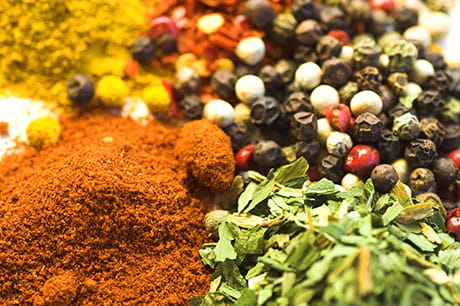Cut salt, not flavor, for an instant health boost
Salt is tasty but can cause health issues
Who doesn’t love a Philly cheesesteak and french fries washed down with a beer or soda? If it’s a once-in-a-while treat, a salty meal probably won’t have a big impact on your health, assuming you are generally fit and don’t have any underlying medical conditions. However, regularly consuming too much sodium in your diet increases your risk for developing a variety of health problems.
"Many people don’t realize how much sodium is packed into many of the foods they eat, especially if they are consuming pre-packaged or restaurant meals," said Lori McNally, RDN, LDN, registered dietitian nutritionist at Geisinger Wyoming Valley in Wilkes-Barre. "Grabbing the salt shaker at the dinner table only adds to the problem."
What’s so bad about salt?
There’s no question about it: Salt is tasty. However, there’s also no question about its potentially negative impact on your health.
"Extra sodium in your blood causes your body to retain water, which increases the volume of blood in your blood vessels," said McNally. "As a result, your blood pressure increases and your heart works harder to pump your blood."
High blood pressure, also called Hypertension, is one of the most dangerous side effects of too much salt. Chronic high blood pressure increases your risk for cardiovascular disease, heart attack and stroke.
The American Heart Association recommends a limit of 2,300 milligrams (mg) of salt per day and ideally no more than 1,500 mg per day for adults. The average American consumes something closer to 3,400 mg of salt per day – increasing their risk for health problems.
How to swap out salt
The good news is that you don’t have to sacrifice taste if you want to cut down on sodium. There’s a whole world of herbs and spices that will add a blast of flavor to even the blandest of meals. And the additional good news is that making a few simple changes can instantly improve your health.
- Use herbs instead: When you’re cooking, reach for herbs like oregano, basil, thyme and rosemary instead of salt. They’ll add the savory flavor you’re looking for without the consequences.
- Be careful with condiments: Many condiments such as salad dressing, soy sauce, ketchup and salsa are loaded with sodium. Read labels carefully and opt for lower sodium versions.
- Spice it up: Add some heat to your dish with spices such as chili powder, curry or turmeric. They create taste complexity while keeping your dish healthy.
- Skip the restaurant: Dining out at a restaurant puts you at the mercy of the chef when it comes to added salt. Many prepared foods get their flavor from unhealthy doses of salt (not to mention fat and sugar). Prepare home-cooked meals as frequently as possible.
- Avoid dinner in a box: What’s just as bad and sometimes worse than restaurants are pre-made, pre-packaged meals in a box. If you need a quick, microwaveable dinner, make sure you read the labels for their sodium content.
- Choose low-sodium canned veggies: Canned vegetables can be just as nutritious as fresh vegetables, with the added benefit of lasting much longer. However, many versions are packed in salt solutions. Look for canned vegetables that say "low sodium" or "no salt added" to slash your salt intake.
"With these few simple changes, you can be on your way to improving your health," said McNally. "They will also help you recalibrate your sensitivity to salt, so you will actually taste and enjoy the salt in your food without having to add more."
Lori McNally, RDN, LDN, is a registered dietitian nutritionist at Geisinger Wyoming Valley in Wilkes-Barre. For more information, please visit Geisinger.org.

